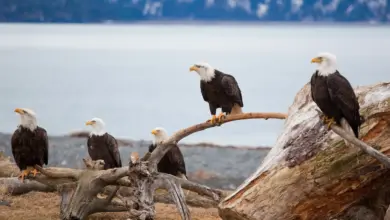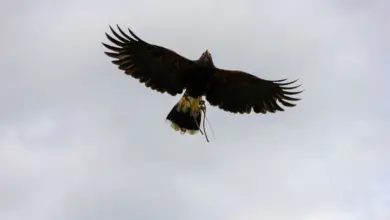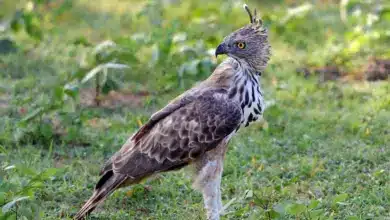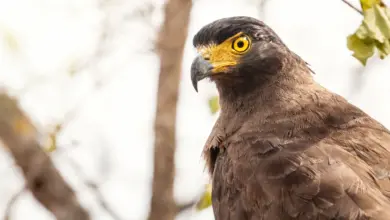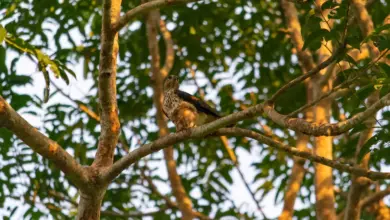Verreaux’s Eagles (Aquila verreauxii), also known as the African Black Eagle or Black Eagle, is a large bird of prey. Its name commemorates the French naturalist Jules Verreaux.
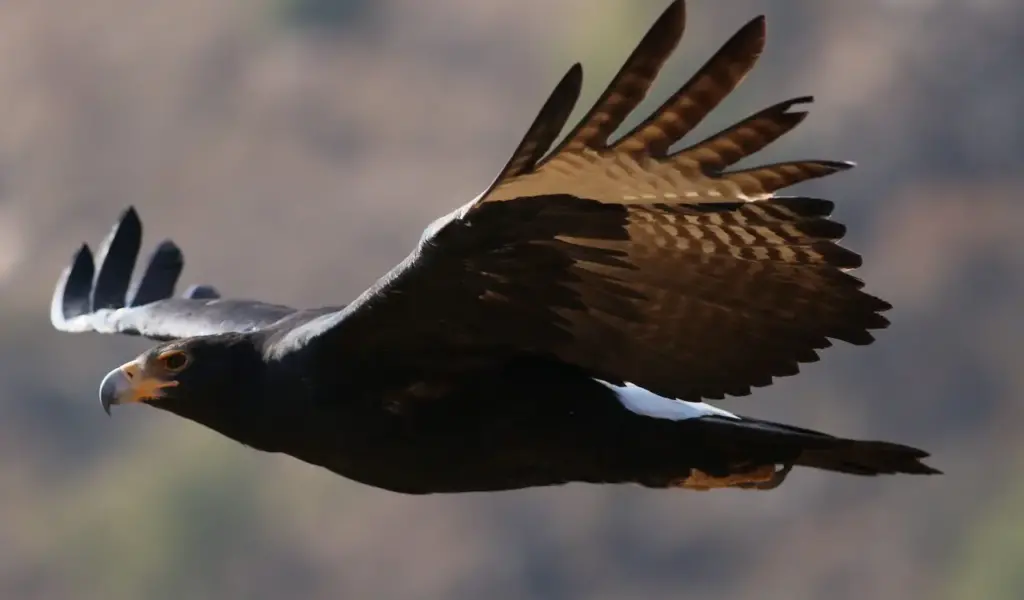
Distribution / Range
This eagle is a resident breeder throughout Africa, especially sub-Saharan Africa, and can usually be found in mountainous regions.
Description
It is about 75 to 95 cm (30 to 38 in) in length, average weight for male is 3.7kg (8lb 02oz) and for females 4.5kg (9lb 14oz) and has a wingspan of up to 2 m (6.7 ft).
It is generally black in colour with a distinct white V marking on its back.
Juveniles are usually light and dark brown in colour with a black face.
Structurally, it is very similar to the Golden Eagle of the Northern Hemisphere, and the Wedge-tailed Eagle of Australia.
Breeding / Nesting
It is highly territorial and can often be seen with another Verreaux’s Eagle, with whom it mates for life. The pair will lay two creamy white eggs, four days apart in autumn, and these will hatch approximately 45 days later.
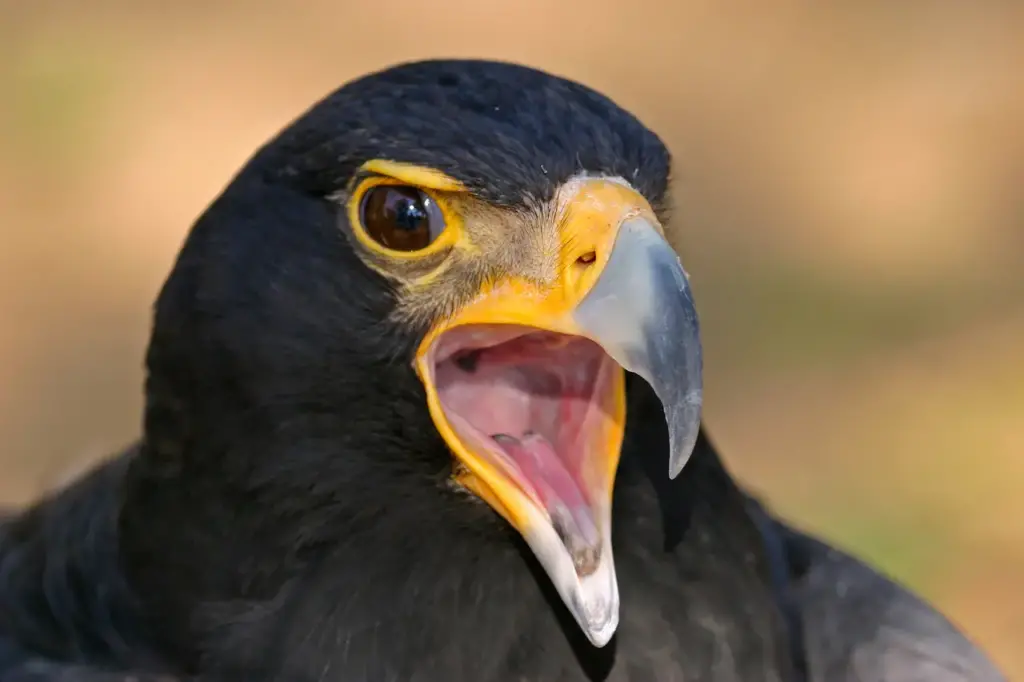
Diet / Feeding
It is a specialist hunter of hyraxes (or dassies). The size of its territory often inversely reflects the size of the local hyrax population. Occasionally, it will prey on birds such as guineafowl or mammals of similar size to hyraxes, such as large rodents.
References
- Mearns, Barbara; and Mearns, Richard. (1988). Biographies for Birdwatchers. The lives of those commemorated in Western Palaearctic bird names. Academic Press: London. ISBN 0-12-487422-3
- BirdLife International (2004). Aquila verreauxii. 2006. IUCN Red List of Threatened Species. IUCN 2006. Retrieved on 6 May 2006. Database entry includes justification for why this species is of least concern
Copyright: Wikipedia. This article is licensed under the GNU Free Documentation License. It uses material from Wikipedia.org … Additional information and photos added by Avianweb.
Please Note: The articles or images on this page are the sole property of the authors or photographers. Please contact them directly with respect to any copyright or licensing questions. Thank you.

